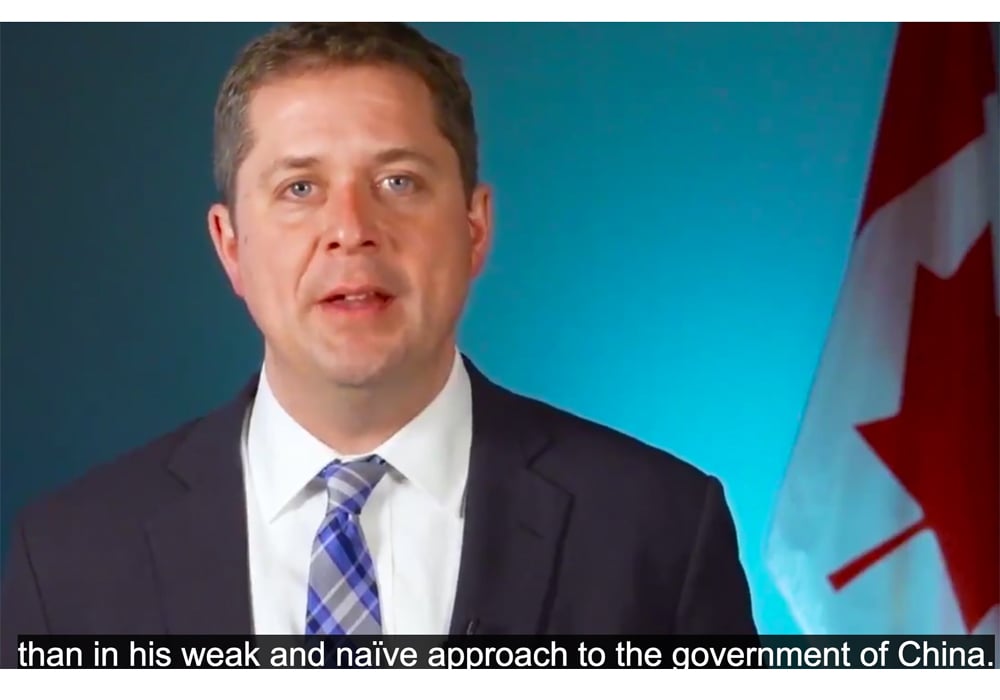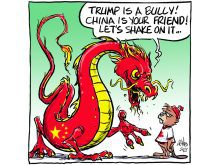How did things ever get so far?
I’m hoping somebody high up in the Chinese government is thinking that today, as its relationships with multiple countries are strained and have suffered considerable damage in the last couple of years. Canada is not the least of those strained relationships and deepening bad blood, with two Canadian citizens abused and in jail, Canada’s farmers being hit by effective bans on sales of canola, pork and beef, and worries increasing about the risk of doing business with or visiting the giant nation.
Read Also

Farming Smarter receives financial boost from Alberta government for potato research
Farming Smarter near Lethbridge got a boost to its research equipment, thanks to the Alberta government’s increase in funding for research associations.
Obviously Canada’s suffered from China’s actions, but China is suffering too. Combined with some of its other contemporary problems, especially the trade war and geopolitical struggle with the United States, China might want to get smart about reducing its present conflicts elsewhere. It’s cutting itself off from needed sources of basic food commodities, in the midst of a massive pig disease outbreak and economic slowdown, and that makes it more sensitive than it needs to be to the U.S., and subject to inflated prices from other commodity suppliers.
Perhaps the results of the recent federal election could provide China with a chance to mellow-out things a bit. The dispute’s gone on almost a year now, and not much is being accomplished by the belligerence. Nobody expects Canada to release Meng Wanzhou from custody before the extradition process has been satisfied, so that probably makes it unlikely that the jailed Canadians will be released. But they could be treated better. It doesn’t look good on China that it is acting in a way that most advanced nations would consider inhumane, so it might want to treat Michael Spavor and Michael Kovrig better. After all, Wanzhou is literally living in a billionaire’s residence while the Michaels suffer in jail.
And agricultural trade with China could be re-opened or at least opened a bit. Nobody’s winning here, and little is being achieved, by these trade blockages.
Why would the end of the federal election matter? It provides the opportunity to form an inflection point. If Andrew Scheer’s Conservatives had won the election, there would have been a chance to restart Canada-China relations, but all the signs pointed to Scheer being more likely to be combative with China and less likely to go back to the way things were than Justin Trudeau’s Liberals. Still, a new face would have meant a new excuse to get talking, and resolutions have a funny way of springing from fresh starts.
Trudeau’s re-election means that the China policy is likely to be similarly conciliatory, if resolute, as it was before the election. In relation to China, the Liberal approach is one of constructive engagement, and that’s something one has to assume the Chinese would prefer to deal with. They might not have that for long.
In the couple of days before the vote, I noticed a couple of Chinese news agency feeds saying positive things about Canada. There was nothing explicit about the fraught relations between the countries, but to me it was notable that some official Chinese sources were portraying some Canadian things in a good light. Is that a sign of something? If so, what’s it a sign of? And who’s sending it? Figuring those things out is the job of Sinologists, who I imagine using more sophisticated analytical tools than Kremlinologists had access to in the Cold War.
But maybe there’s a chance for a limited or contingent rapprochement between China and Canada. China knows it’s got probably a couple of years at least to work with a constructive engagementist Prime Minister before the next election, which might bring in a less friendly PM. Since the dispute is costing a weak Chinese economy and complicating its geopolitical situation, some sane heads in Beijing might want to settle this and other disputes down a bit.
Canada’s and China’s problems aren’t going to go away overnight, but there’s a window of opportunity to douse this dispute to the level of a smoulder, rather than an open flame.


















